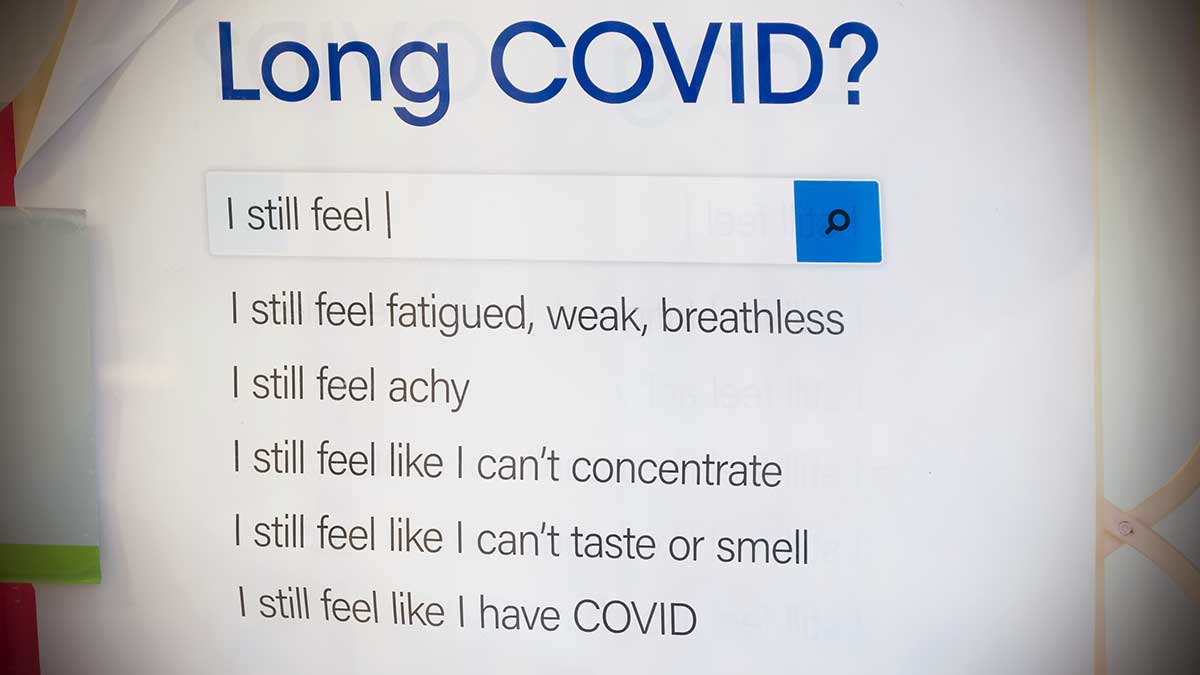COVID may no longer be creating headlines on a daily basis, but a new study is demanding an urgent overhaul of the nation’s response to long COVID.
According to the research, Australia has been found wanting in several categories when it comes to long COVID management. These include early investigation, accessibility and availability of trustworthy public health information and adequate services to meet demand.
Study co-author Professor Catherine Itsiopoulos warns that the problem will only get worse over time.
“Long COVID is here to stay. As COVID-19 cases continue to accumulate, the cases of long COVID will also increase,” said Prof. Itsiopoulos, dean of RMIT’s school of health and biomedical sciences. “With unclear diagnosis and unknown effective treatment, this new chronic disease will be highly costly to the individual and on public health systems worldwide.”
Long COVID – where are we going wrong?
The study identifies a stark gap between long COVID recommended guidelines and the treatment actually being delivered to patients. Some of this stems from health professionals being unaware of possible symptoms and appropriate courses of action.
Associate Professor Zhen Zheng, also a co-author of the paper, says early investigation recommendations are not being consistently applied.
“Because there’s so much confusion around the definition of long COVID and so little that we know about it, even healthcare professions – including GPs at the frontlines of healthcare – don’t know how to spot the early signs or how best to help people experiencing it,” said Prof. Zheng.
Australia is also falling short when it comes to public awareness and education, the study found. Trustworthy public Long COVID information – such as websites – is either not readily available or not advertised, the study concluded.
What needs to be done?
Accordingly, Professors Itsiopoulos and Zheng are calling for policymakers to implement a new response framework based on US, UK and Australian guidelines. This would draw on insights from the Australian National Strategic Framework for Chronic Conditions and entail four key phases:
- Early detection
- Address mental health issues in the acute phase
- Investigate symptoms at four to eight weeks
- Referral to a long COVID clinic.
Using this new approach, many of the current shortcomings will be addressed, the authors say.
They maintain the shortcomings stem from the sheer complexity of long COVID, which has more than 50 symptoms affecting 10 different body systems and for varied and unknown durations.
Such a wide-ranging spectrum of moving parts calls to mind the phrase, ‘like herding cats’”’. In most cases the failures of long COVID treatments are not the product of neglect or indifference but knowledge gaps.
By and large, adopting a coordinated response will help close these gaps, experts say. Professor Don Campbell, Northern Health’s clinical service director of the Staying Well Program, praised the study as timely and helpful.
“Victoria held the first long COVID conference on 1 September, convened by the Department of Health,” said Prof. Campbell. These “identified long COVID rates of 14 per cent in a survey of over 11,000 respondents,” he continued.
“It’s now time for a coordinated response. Vulnerable marginalised community members are at particular risk. Research must focus on prevention and management of Long COVID.”
Have you been diagnosed with Long COVID. How would you describe your treatment experience? Let us know via the comments section below.
Also read: Aussie researchers develop long COVID drug


I have been diagnosed with possible long Covid but as there is no clearly distinguishing feature it remains uncertain.
My GP said there is not much that can be done anyway and just to take it easy and ride it out.
Being an age pensioner I can do that, but difficult for anyone still working.